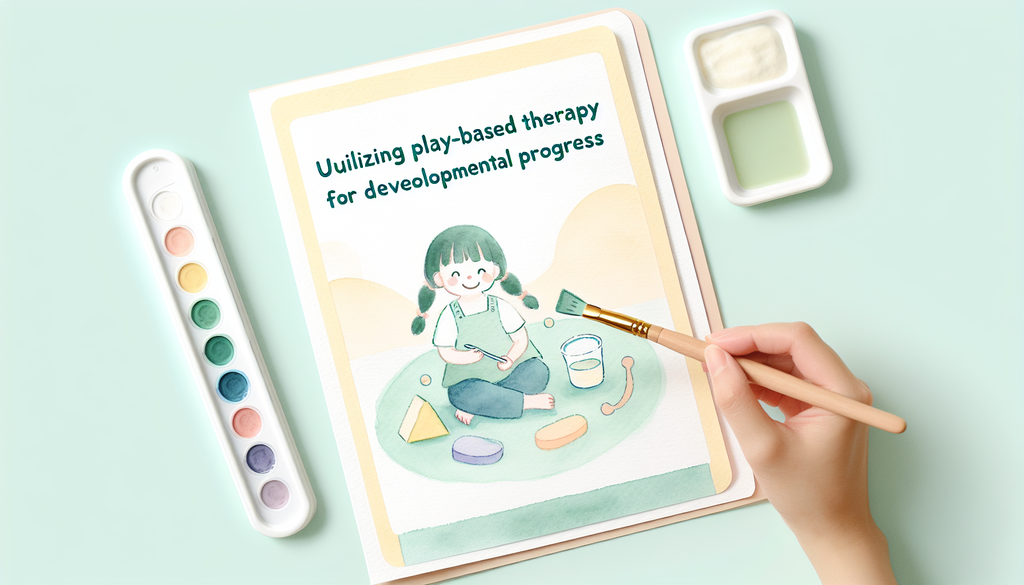Utilizing Play-Based Therapy for Developmental Progress

Play-based therapy is an effective method for nurturing developmental growth in children, especially those with Autism and other developmental disorders. By engaging a child’s natural inclination towards play, therapists can stimulate cognitive, emotional, and social development in a fun and non-threatening environment. Let’s explore the benefits and techniques of play-based therapy and how it can foster developmental progress.
Why Play-Based Therapy?
Children find a deep sense of joy in play. It is through playing that children learn about the world around them and their place in it. But for children faced with developmental disorders, play doesn’t just teach, it heals. It offers them a platform to explore their feelings, behaviors and ideas in a safe and supportive space. Numerous studies, like this one from the American Journal of Play, have highlighted the potentials of play therapy in promoting mental well-being and encouraging social competencies.
Play-based therapy also aligns with the approach of child-centered therapy that we highly advocate in our post, The Role of Play Therapy in Child Development. In this setting, the therapist creates an environment of acceptance, empathy, and understanding to help the child express emotions and thoughts that may be difficult to articulate otherwise.
Techniques Used in Play-Based Therapy
A variety of techniques are deployed in play-based therapy, depending on the child’s unique needs and potential triggers. These include:
- Role-Playing Games: Helps children understand various perspectives, appreciate social roles and conventions, and practice problem-solving skills.
- Art Activities: As expressed in our post Art Therapy: A Canvas for Special Needs Expression, art activities enable children to communicate and explore their emotions non-verbally.
- Puppet Play: Allows the child to project their emotions and thoughts onto a “safe” third party and can be particularly useful in discussing difficult experiences.
- Sensory Play: Especially beneficial for children with Autism or Sensory Processing Disorder. As we shared in Understanding Sensory Integration Therapy for Special Needs, sensory play can help children learn to regulate their responses to sensory stimuli.
Benefits of Play-Based Therapy
Play-based therapy targets a number of developmental areas:
- Social skills: Children can practice effective communication, cooperative play, and problem-solving. You can see more on this in our post, A Parent’s Guide to Social Skills Group Therapy.
- Emotional health: As children express their fears, joys, and sorrows through play, they learn to regulate their emotions more effectively. This supports their emotional health, a concept we delve into in The Role of Friendship in Emotional Health for Special Needs Children.
- Cognitive development: The pretend play aspect of the therapy, which we discuss in The Importance of Pretend Play in Cognitive Development, helps children enhance their problem-solving and creative thinking skills.
In conclusion, play-based therapy is a holistic approach to advancing developmental progress in children with Autism and other developmental disorders. By creating an engaging environment that promotes learning about the self and others through, this therapy allows children to embrace and overcome their challenges in a playful, pressure-free setting. As with any therapy, it’s vital to find a licensed professional who can guide your child safely and effectively through the process. Overall, it’s a powerful tool in helping your child unlock their potential.